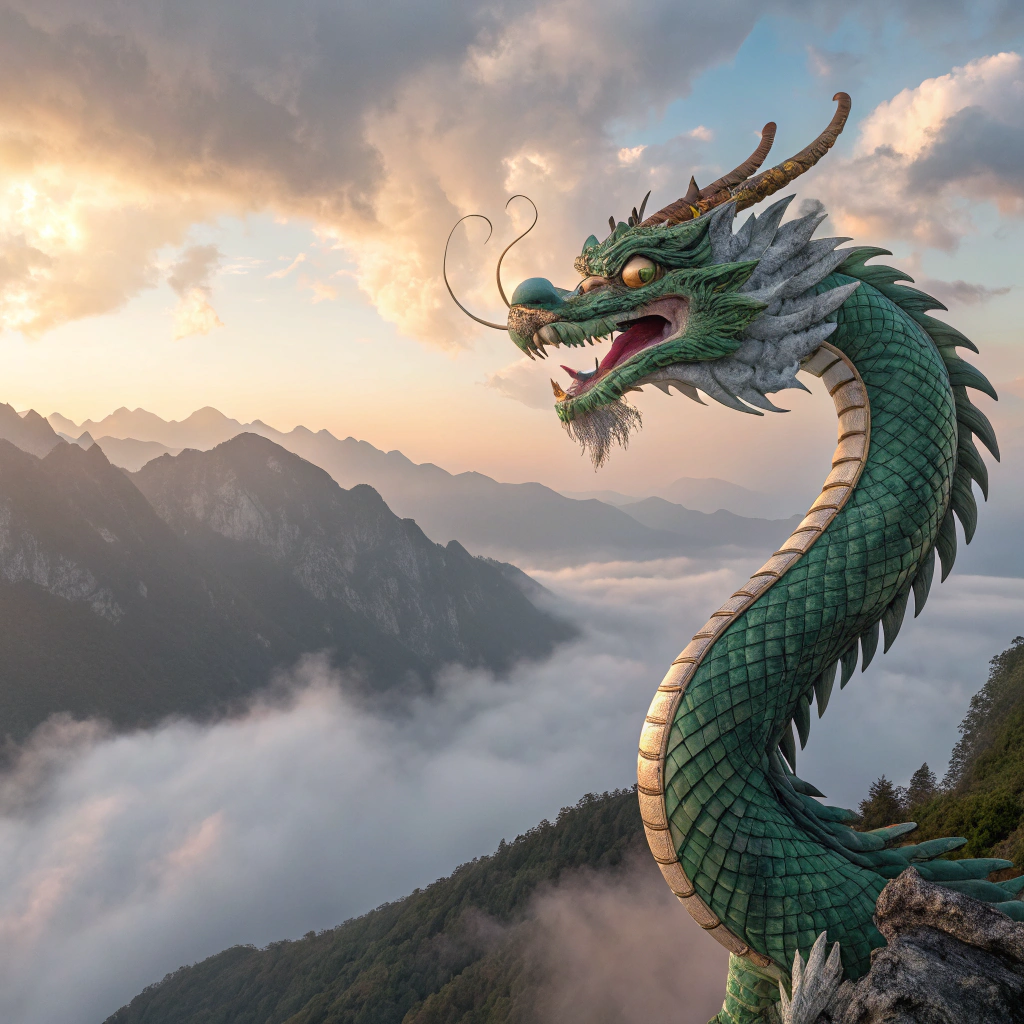
Chinese Dragon Name Generator
Name: Long Wang
Meaning Origin Description Dragon King Chinese Mythology Ruler of the Four Seas and controller of rain and weatherName: Yinglong
Meaning Origin Description Responding Dragon Chinese Mythology Winged dragon who served the Yellow Emperor and brought rainName: Dilong
Meaning Origin Description Earth Dragon Chinese Mythology Underground dragon controlling rivers and springsName: Tianlong
Meaning Origin Description Celestial Dragon Chinese Mythology Guardian of heavenly palaces and divine treasuresName: Shenlong
Meaning Origin Description Spirit Dragon Chinese Mythology Controller of winds and rain in Chinese mythologyChinese Dragon Details
| Habitat | Celestial realms and sacred mountains |
| Breath weapon | Divine essence and weather control |
| Usual alignment | Lawful Neutral |
The Chinese Dragon (Draco orientalis imperialis) represents a unique species of serpentine, quadrupedal reptilian creatures characterized by their elongated bodies, scaled dermis, and distinctive horned cranial structure. These beings typically measure 20-30 meters in length, possessing the ability to manipulate atmospheric conditions and navigate through both aquatic and aerial environments.
Physical Characteristics:
- Elongated, serpentine body structure
- Four powerful limbs with five-clawed extremities
- Distinctive whisker-like sensory organs
- Scaled epidermis with iridescent properties
- Cranial horns and elaborate facial features
- Internal organs capable of atmospheric pressure manipulation
Habitat and Distribution: These creatures primarily inhabit mountainous regions, deep water bodies, and celestial spaces within East Asian territories. They demonstrate remarkable adaptability to various elevations and pressure conditions, from oceanic depths to high-altitude environments.
Behavioral Patterns: Chinese Dragons exhibit highly intelligent and sophisticated social behaviors. They maintain complex hierarchical structures and demonstrate remarkable diplomatic capabilities when interacting with other species. These beings show particular interest in human civilizations, often serving as guardians or advisors in historical accounts.
Special Abilities:
- Weather manipulation
- Flight without conventional wing structures
- Aquatic navigation
- Shape-shifting capabilities
- Enhanced longevity
- Advanced cognitive functions
Typical Alignment: Generally lawful and benevolent, these creatures consistently demonstrate a strong ethical framework focused on wisdom, justice, and prosperity. They typically align with forces promoting harmony and balance in their environments.
Diet and Hunting Patterns: While capable of consuming physical sustenance, these beings appear to derive significant energy from spiritual and ethereal sources. They rarely engage in traditional predatory behavior.
Cultural Significance: These creatures maintain a unique position in ecological and social hierarchies, often serving as mediators between natural forces and terrestrial beings. Their presence frequently correlates with periods of prosperity and environmental balance in their chosen territories.
Research Note: Documentation of Chinese Dragons relies heavily on historical records and cultural artifacts, as direct observation remains challenging due to their elusive nature and ability to alter their form at will.